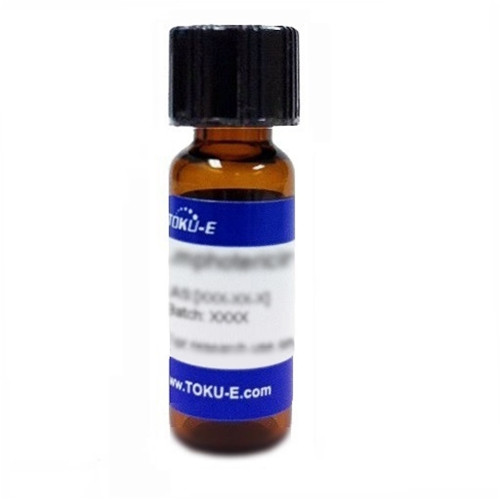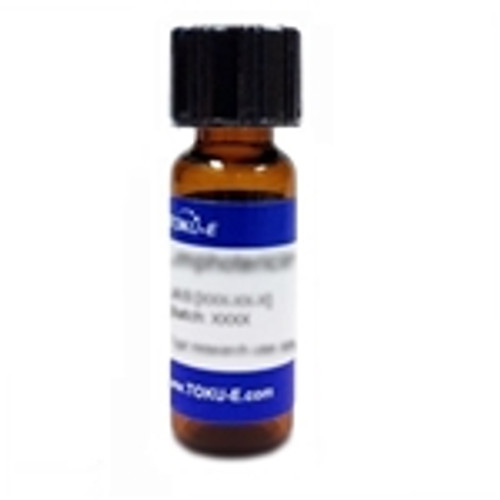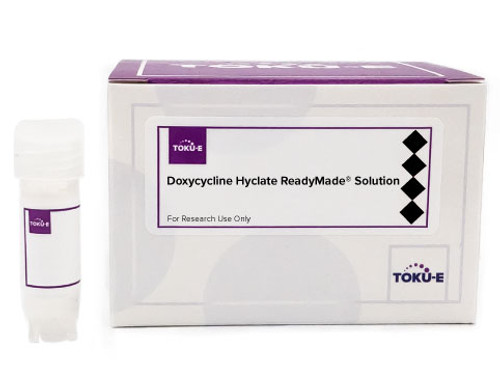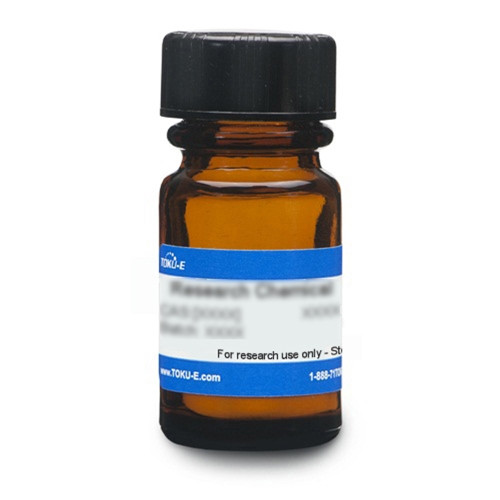Doxycycline Hydrochloride is the preferred formulation in many pharmaceutical research applications. The compound has broad-spectrum antibacterial and antiprotozoan activity, interfering with bacterial protein synthesis. It also displays anti-tumor properties.
Doxycycline hydrochloride is soluble in water, ethanol, methanol, DMF and DMSO.
We also offer:
| Mechanism of Action | Doxycycline Hydrochloride readily forms a salt in HCl solutions due to the protonation of the basic dimethylamino group. Tetracycline antimicrobials bind to the bacterial 30S ribosomal subunit interfering with tRNA/mRNA interaction, ultimately inhibiting protein synthesis. Tetracyclines can inhibit the MMP enzyme family and inhibit mitochondrial biogenesis and it can also interfere with tumor-related protein synthesis in mammalian cells. |
| Spectrum | Doxycycline Hydrate has broad-spectrum activity against Gram-positive and Gram-negative bacteria, and protozoa. |
| Microbiology Applications | Doxycycline is commonly used in clinical in vitro microbiological antimicrobial susceptibility tests (panels, discs, and MIC strips) against Gram-positive, Gram-negative, and certain Mycoplasma species. Medical microbiologists use AST results to recommend antibiotic treatment options. Representative MIC values include:
|
| Eukaryotic Cell Culture Applications | Doxycycline is routinely used for gene selection. For additional information on your cell culture needs, please visit our Cell-Culture database. Doxycycline is a matrix metalloproteinase inhibitor. Using a series of in vitro assays that mimic steps in vascular remodeling, researchers found Doxycycline increased smooth muscle cell adhesion to the substrate. It also inhibited collagen gel remodeling. These properties make it potentially useful in vascular disease like atherosclerosis, restenosis, and transplant arteriopathy (Franco et al, 2006). |
| Cancer Applications | Doxycycline was able to inhibit cancer stem cell progression across an entire panel of 12 different tumor cell lines representing different cancer types (DCIS, breast, lung, ovarian, pancreatic, prostate, glioblastoma, and melanoma (Lamb et al, 2015). Doxycycline can eradicate cancer stem cells in breast cancer patients in vivo. Authors found a quantitative decease in CD44 and ALDH1 expression, biomarkers of ‘stemness’. This is promising work in using cancer stem cells for cancer prevention, and is an excellent candidate for compound repurposing (Scatena et al, 2018). Doxycycline was found to inhibit proliferation, migration, and invasion of NCI-H446 human small cell lung cancer cells in a dose-dependent manner. It suppressed transcription factors Twist1/2, SNAI1/2, AP1, NF-κB, and Stat3, which resulted in a reversal of epithelial-mesenchymal transition and inhibited signal transduction, which suppressed tumor growth and metastasis. It selectively targets malignant tumors and reduces its metastatic potential with less cytotoxicity (Qin et al, 2015) |
| Molecular Formula | C22H25ClN2O8 |
| Solubility | Doxycycline Hydrochloride is soluble in water, ethanol, methanol, DMF and DMSO. |
| References | Franco et al (2006) Doxycycline alters vascular smooth muscle cell adhesion, migration, and reorganization of fibrillar collagen matrices. Am. J. Pathol 16895):1697-1709 PMID 16651635 Gossen M et al (1995) Transcriptional activation by tetracyclines in mammalian cells. Science 268(5218):1766-1769 PMID 7792603 Lamb R et al (2015) Antibiotics that target mitochondria effectively eradicate cancer stem cells, across multiple tumor types: Treating cancer like an infectious disease. Oncotarget. 6(7):4569-84 PMID 25625193 Qin Y et al (2015) Doxycycline reverses epithelial-to-mesenchymal transition and suppresses the proliferation and metastasis of lung cancer cells. Oncotarget. 6(38):40667-40679. PMID 26512779 Rosenblatt JE, Rosenblatt JE, Barrett JE, Brodie JL and Kirby WM (1966) Comparison of in vitro activity and clinical pharmacology of Doxycycline with other tetracyclines. Antimicrob. Agents Chemother. 6:134-141 PMID 4964450 Scatena C et al (2018) Doxycycline, an inhibitor of mitochondrial biogenesis, effectively reduces cancer stem cells (CSCs) in early breast cancer patients: A clinical pilot study. Front. Oncol. 8:452 PMID 30364293 Stephens CR et al (1958) Hydrogenolysis studies in the tetracycline series - 6-Deoxytetracyclines. J. Am. Chem. Soc. 80:5324Product Reference Doxycycline (TOKU-E) was used in methacrylate-based copolymer films and studied their effects on biofilm formation: "Prevention of biofilm formation by methacrylate-based copolymer films loaded with rifampin, clarithromycin, Doxycycline alone or in combination." (Rose et al) |







